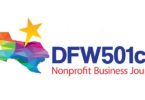by Paul Harral, Fort Worth Report
August 6, 2023
It’s easy to say our children are our future. What’s difficult is to prepare them for that role and what’s even more difficult is to pay attention to what they think and say about that future.
That’s where AJ Rea comes in.

Rea is district director of the YMCA Youth and Government Program for the YMCA of Metropolitan Fort Worth.
Her job is to engage with schools – mostly public but also private and in the future home schools – to get kids to participate in the program.
“We’ve got over 300 kids participating right now. We’re looking to grow that for next school year and see what kind of impact we can have together,” she says.
What’s ironic is that while she works for the YMCA of Metropolitan Fort Worth, none of those participants are from the Fort Worth ISD. Rea would like to see that change.
Fort Worth ISD has been involved in the past with the Eastside YMCA, but when the then-executive director of that branch departed, the Eastside YMCA closed and COVID-19 hit, the program faded, said Tobi Jackson, the Fort Worth ISD District 2 member and immediate past president of the board.
“The program was a game changer in student confidence, communication and social skills,” she said.
But Fort Worth ISD is not currently involved.
The new president of the board is Camille Rodriguez, who is a doctor of podiatric medicine, and represents District 1. She graduated from the Honors Program at Paul Laurence Dunbar High School.
“Fort Worth ISD has not been approached regarding this program and we certainly look forward to learning more about future opportunities,” she said.
Jackson said the schools promote civic engagement, noting that Texas requires that school districts offer the opportunity to register to vote on their high school campuses.
YMCA Youth In Government
For more information, visit the YMCA’s Youth in Government website.
“We worked very hard to get students to the polls and provided transportation this past fall for every 18-year-old student to ensure they had access to the polls and, ultimately, vote,” Jackson said.
There are five Youth in Government districts in Texas – Dallas, Fort Worth, Austin, Houston and San Antonio – and Rea is in charge of District Four, which is primarily Fort Worth and the surrounding area.
High schools are participating in the Crowley, HEB, Keller and Eagle Mountain Saginaw ISDs, and in Hood County, too. Four middle schools in Eagle Mountain Saginaw participate, and Rea would like to see middle school participation increase as a way to grow the program in upper grades.
The subject is near and dear to the heart of James Riddlesperger, Ph.D., who teaches American Politics, American Political Institutions and Texas Politics, among other courses at Texas Christian University.
He’s spent nearly a half century teaching American politics, and “civics has been a central focus of my career and for those of thousands of college professors and tens of thousands of public-school teachers.”
But despite that, a huge number of Americans are without adequate civics understanding, he said. One survey showed that only 36% of Americans can name the three branches of government.
“We have poor socialization in the culture encouraging a well-read electorate after their formal education, remembering the old adage that those who do not read are no better educated than those who cannot read,” Riddlesperger said.
Obviously, civics education itself has been challenged systemically in recent years, he said. There has been a huge emphasis on STEM subjects thought to give students better employment skills and on professional education while liberal arts education has been emphasized less.
Social science teachers are being unfairly accused of proselytizing when they attempt to teach students critical thinking skills, he said.
“Attempts to preclude discussion of race in American politics – virtually no one teaches anything similar to ‘critical race theory’ in public schools – or to censure reading materials are canaries [in the coal mine] singing to social science teachers to curtail critical analysis of the gap between the performance and the promise of American politics,” he said.
Programs like the YMCA Youth in Government Program can fill in some of the gaps.

The programs are a learn-by-doing experience. They include local training and strategy sessions where students identify problems they see around them and develop strategies to deal with them.
And the students get to go to Austin where they can meet – and lobby – members of the Texas Legislature.
All the participants.
“Last year, we were using a hotel in Austin called the Renaissance. Great hotel, great facility. We love it. But we outgrew it. We were at a point where we were putting air mattresses in the rooms so that we had enough space for the kids,” Rea said. “This year we’ve branched out and we’re now going to have our state conferences in Austin at the Kalahari Resort in Round Rock. In the past, some kids didn’t get to go to state, and it was solely a capacity issue. With the new, larger space, we will no longer have that capacity issue. We are excited that this change will open this learning event to include anybody who wants to go, can go.”
In the present climate, subject matter can be a touchy issue, but Rea hasn’t encountered that.
“The kids are discussing topics that matter to them. For example, last year a child proposed a bill to restructure STARR testing in order to make it not such a huge mental health impact on kids. One of my middle schoolers last year proposed a bill that would grant kids mental health days,” she said.
The students talk about school dress code, school security and similar subjects.
“They’re not talking about anything divisive. I haven’t yet encountered any situation where there’s been controversy over any topic that we’re talking about,” she said.
“And I’ll tell you that in the three years I’ve done this, I’ve never heard one of the kids ever say the word ‘Democrat’ or ‘Republican.’ I have heard, ‘Oh, this is kind of more of a liberal thing or more of a conservative thing.’ But those are broad terms.
List of participating schools
High Schools
Crowley ISD
Bill R. Johnson Career and Technical Education
Hurst-Euless-Bedford ISD
Trinity High School/Buinger Career and Technical Education
Keller ISD
Keller High School
Eagle Mountain-Saginaw ISD
Chisholm Trail High School
Saginaw High School
Boswell High School ¨C33C¨C34C¨C35C¨C36C¨C37C¨C38C¨C39C¨C40C¨C41C¨C42C
“They’re not putting themselves in corners of the room and fighting. They’re having honest, open, earnest discussions that further the understanding of where that topic may be,” she said.
Riddlesperger likes programs that follow a model like that.
“I think there is a huge potential for programs that encourage individuals to participate,” he said. “Some of this might be a ‘Hawthorne Effect,’ where participants act precisely because they feel ‘special’ for having been included. Also, there may be a bit of self-selection involved – those who agree to the program may not be a cross section of citizens. It also will be interesting to see if the pattern persists over time. But I love the intent,” he said.
A critical element is not talking down to the students.
“It’s insanely important,” Rea said. “I don’t tell the kids what topics to choose. We just need to listen to them.
“Listening is critical when you are interacting with kids at this age because they’re trying to find their voice. And the more me or you or any adult throws at them, the tougher their job gets. So, we just listen to what they’re saying and help them move forward, rather than tell them what to say. We let them talk,” she said.
The students may know and understand the problems in their schools better than the adults do, and their discussions revolve around their life experiences.
“This specific generation of kids, they’ve got some really great ideas on climate change and things like that. They’re talking about their own futures, too. So, when we’re having conversations about climate change, they know that they’re going to take over in a few years and we want to make sure they’re ready for that,” Rea said.
The program mostly grows by word of mouth, she said.
Last year, the delegation Rea took to Austin doubled in both high school and junior high. One school increased from five participants to 17.
“That wasn’t necessarily because of me. It was because the programs themselves grew. By providing them with that exceptional experience when they go – not just the experience of sitting at a senator’s desk and arguing your bill, it’s also about the fun that we provide them while they’re at the hotel. We have all kinds of amazing activities. The kids love the experience so much that our retention remains pretty high,” she said.
“These kids know what’s going on. These kids are listening to the conversations that are happening that could possibly affect them.”
An addition to the traditional program, Rea has initiated a Youth Advocacy Council.
“It’s local. It’s made up of middle school and high schoolers. And we have a conference call once a month to talk about topics they’re passionate about here in the community. And it’s my job as a facilitator, if they want to go to city council meetings and have an open forum, I’ll make those arrangements,” she said.
The objective is to let them have their voice heard and give them that experience of seeing the people who are the decision-makers now and knowing that they’re going to be those decision makers very soon.
“I think they deserve to have the chance to ask questions in public,” Rea said.
There’s also a volunteer community service component.
“We’re going to get out in Fort Worth and we’re going to do community cleanup and we’re going to volunteer at the Union Gospel Mission. And if they’ve got ideas on climate, then get out there and maybe help a community garden. So, it doesn’t just focus on the experience of your bill, state, district, Austin. Even outside of that program, my kids are having these kinds of conversations continuously,” she said.
The program includes a realistic requirement: Students cannot propose unfunded mandates.
They can’t say every school has to put metal detectors in and not provide funding for it or find a way to offset that funding.
An example was a young man who wanted to propose a bill requiring every emergency department to have a Spanish-speaker present because he knew of a situation where a patient was treated for the wrong issue because of language difficulties.
But how to fund that?
The funding proposal proposed was based on lottery ticket sales.
“We found out that lottery tickets in Texas are sold in Spanish. And so the revenue from all lottery tickets sold in this Spanish language would go toward funding that,” Rea said.
Putting aside whether that could pass in Austin, the junior high school student figured out the logistical steps to fund such a law if passed.
One reward to working with young people is seeing their faces when they realize that they can do something they didn’t know they could do.
“That’s one of my favorite parts of the job, watching the kids do their thing. I’d love to just sit back and watch them when they’re in committee, when they go to the floor. And sometimes too, when we go to Austin, parents will come with them. Got to see those moments where mom and dad got to watch their child present their bill on the floor in the Senate and it’s a good deal,” Rea said.
She said there is a way to connect the kids to adults and community decision-makers.
If a YMCA branch is discussing, say, teen mental health, Rea can supply youths who have researched the topic and can speak intelligently about it.

“If we have any opportunity to connect these kids to the actual people in the community, we’re going to do that,” Rea said. “It’s a whole different way of talking to people when you’re talking to each other as 13-year-olds versus a group of 20 adults.”
The YMCA has an Advocacy Program in which two students from Texas go to Washington to lobby politicians and political staff members on programs of interest to the organization.
“It’s so fun. What they do is they give them pieces of legislation that are stuck in committee or won’t make it to the floor for a vote. And we send them into Congressional and Senate offices to sit down with elected leaders and advocate for that legislation,” she said.
The pitch is to simply get the legislation out of committee or urge the Senate and/or House leaders to bring it to a vote.
This past year, the issues were a childcare block grant that had been hung up in committee, a wellness program that the YMCA needed funding for diabetes prevention. Texas Sen. John Cornyn had written legislation to increase funding for civic health programs exactly like that.
“They read the legislation, and then they practice their pitch, and sit down in congressional offices and advocate for these policies that are good for the YMCA and support the core values of the YMCA,” Rea said.
Rea grew up in Indiana and studied history at Indiana University, and, in case you were wondering, is named after A.J. Foyt, four-time winner of the Indianapolis 500. She came to Fort Worth in 2018 when her husband took a job at the Bureau of Engraving and Printing, literally to make money.
She got a job at the YWCA where she became familiar with the Youth and Government program and became involved as a facilitator and is now district director of the program.
Paul K. Harral is a longtime Fort Worth journalist who was vice president and editorial page editor at the Fort Worth Star-Telegram among other assignments, and later was editor of Fort Worth, Texas magazine and associate editor at the Fort Worth Business Press. His background includes radio, television, newspaper and wire service experience in five cities. He was a member of the United Press International Apollo program coverage team.
What participants say
The YMCA Youth and Government program surveys student participants about the program. Here are some recent comments:
- “Throughout the course of human history, the achievements of those in power have been foreshadowed by their ambitions in youth. To deny an experience that will help me to join the future pantheon of America’s leaders would be irresponsible on my part.”
- “YG is a wonderful opportunity to show off and grow my leadership skills.”
- “As we learn more about the workings of our government, which is by and for the people, we equip ourselves to fully participate in the system, understanding its relevance to our lives and the lives of our fellow Americans.”
- “To be a citizen of the United States, it is important to understand how the government works. We need to be aware of how the government works so we can become involved as young adults. I first joined YMCA Youth and Government because I heard about it through a friend. I stayed in the club because I enjoyed the leadership and teamwork skills the club offers.”
- “YG was a good experience in which I could learn hands-on about how the government works. I liked that I could encourage my friends to team up and do this together. I also liked that I met others in the program. We had the opportunity to set up our own club.”
- “I joined YG because I love debating and learning about politics.”
- “YG provides us with understanding of the government so we will be able to make informed decisions once we are able to vote.”
Source: https://ymcatexasyg.org/
This article first appeared on Fort Worth Report and is republished here under a Creative Commons license.








